Agriculture & Environment
CAES Innovation Scholars Programme Boosts Critical Thinking, Innovativeness amongst Staff & Students
Published
4 years agoon
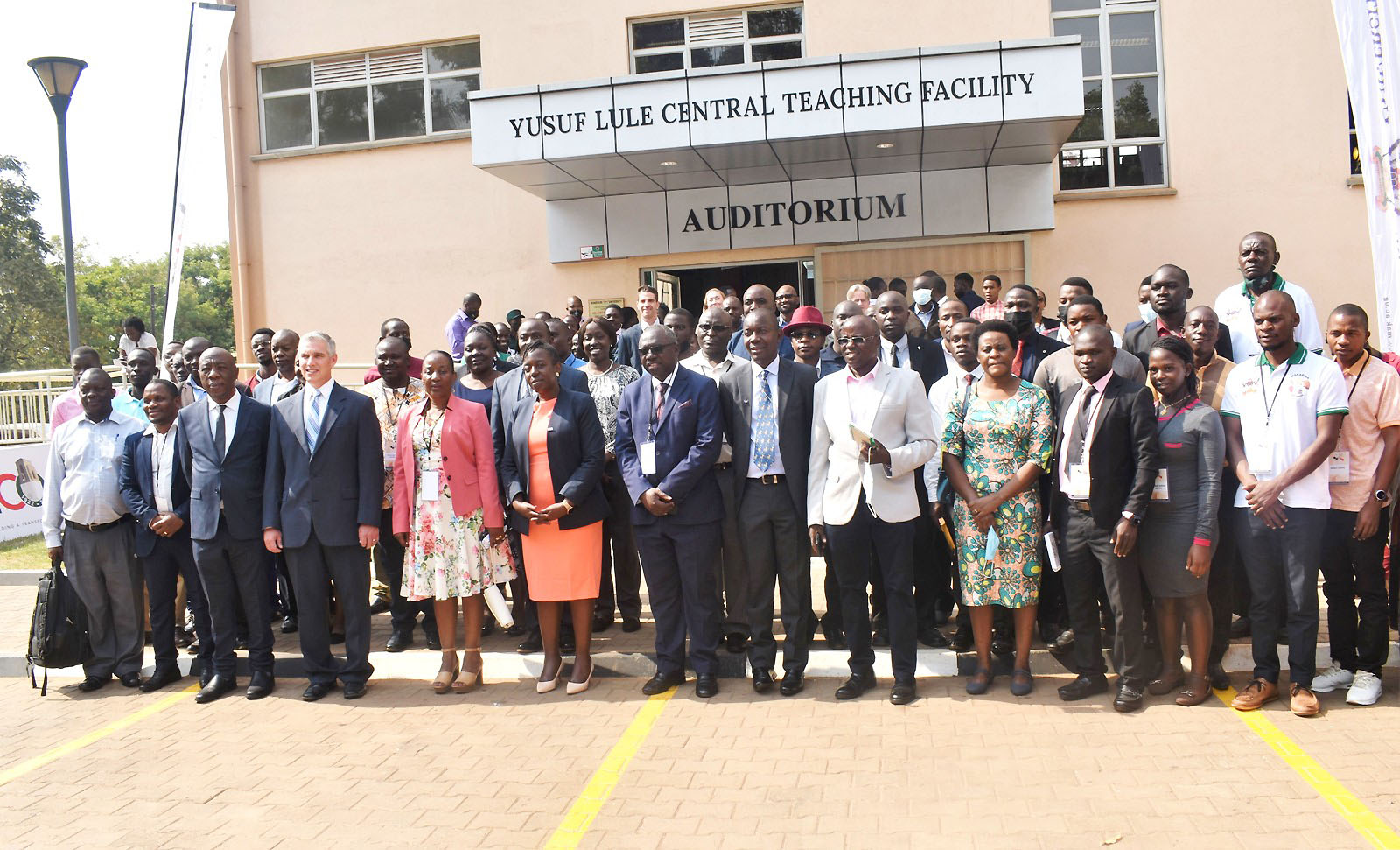
Inadequate curricula to stimulate innovativeness and entrepreneurship within learners and faculty and limited partnerships and collaborations are some of the major bottlenecks to innovativeness at the College of Agricultural and Environmental Sciences (CAES), Makerere University. The current programme design, sequencing and delivery inhibits critical thinking and innovation as it focuses more on theory than practice. Reviewing curricula to make it more learner-centered and entrepreneurial, reducing theory and creating more time for practical sessions can enhance the innovation culture at CAES.
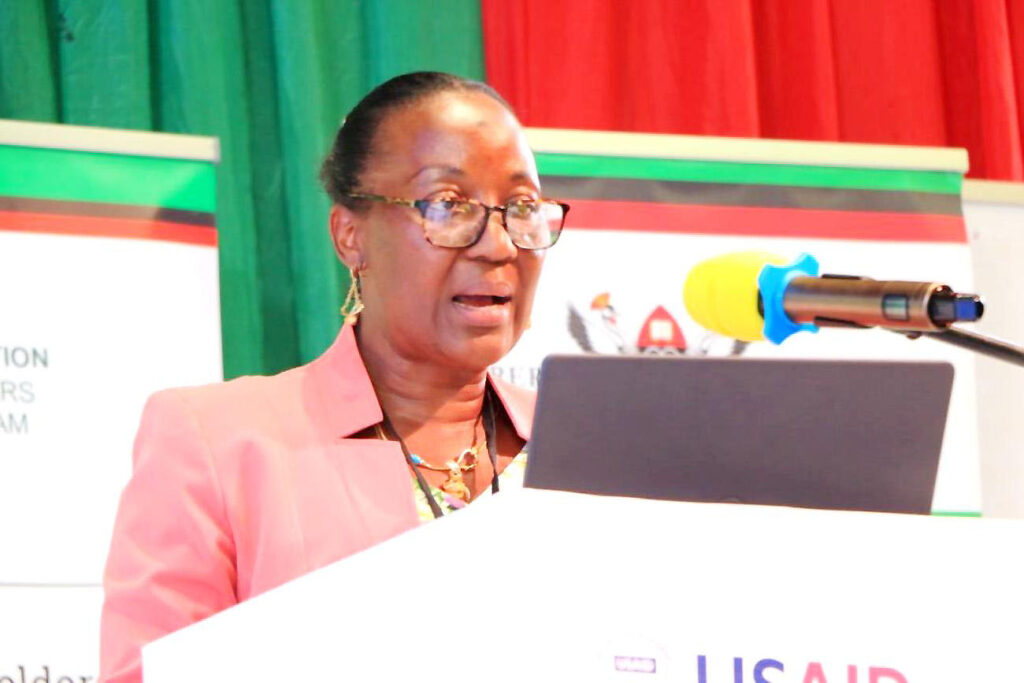
Through the Innovation Scholars Programme, CAES and Michigan State University’s Borlaug Higher Education for Agricultural Research and Development (BHEARD) Program with the support of the MSU’s Global Centre for Food Systems Innovation (GCFSI) are working together to advance the College toward its strategic vision – “to be a leading institution of academic excellence and innovations in Africa.” The CAES Innovation Scholars Programme (CAESISP) offers an eighteen-month opportunity during which CAES academic staff work as interdisciplinary teams to solve problems in the food systems in Africa, while at the same time offering support to the entire CAES academic fraternity in the areas of design thinking, teaching and learning, community outreach, and communicating science.The CAESISP serves as a catalyst to support food system innovations that improve food security, and develop the current and next generation of entrepreneurial scientists at Makerere University and in the region. The programme is modelled after a successful, field-tested faculty development programme implemented at the Lilongwe University of Agriculture and Natural Resources (LUANAR) and the Malawi University of Science and Technology (MUST) —yet tailored for innovation and contextual challenges at Makerere University. The core values of the CAESISP include: participatory, asset-based, learner-centered, contextualized, and evaluative.
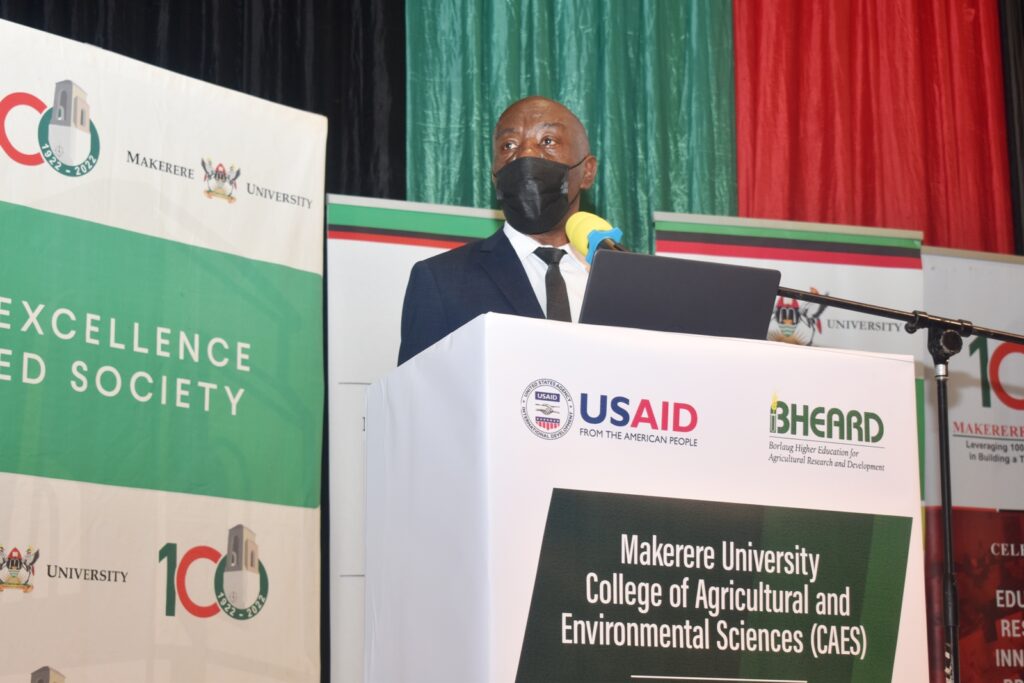
Under the programme, a number of academic staff at CAES have been coached to enhance their innovativeness to provide practical solutions to challenges affecting the agricultural sector. The researchers have also been equipped with various skills to deliver curricula that is practical-oriented and fosters critical thinking as well as entrepreneurship. At Makerere University, the Programme is headed by the Principal of CAES, Prof. Gorettie N. Nabanoga, and coordinated by Prof. Jackie Bonabana – Wabbi from the Department of Agribusiness and Natural Resource Economics (DANRE), CAES. The Michigan State University Coordinator is Dr John Bonnell, BHEARD Director.
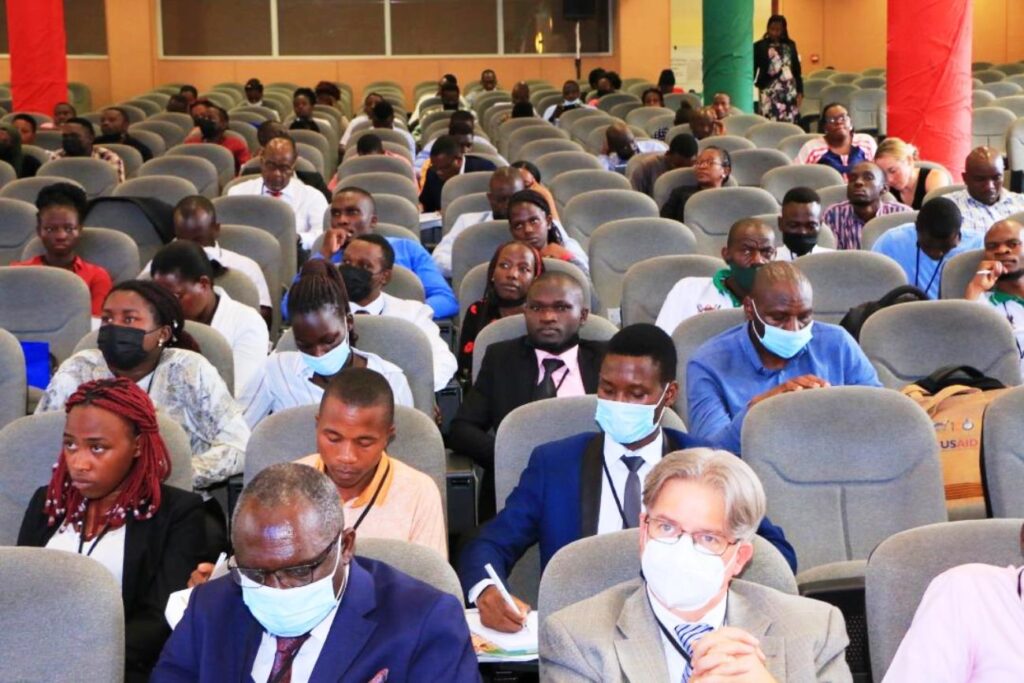
In the second week of August 2022, the College held a two-day workshop under the theme – “University Responsiveness to Innovation” to showcase some of the innovations that have resulted from the programme. The event held at Yusuf Lule Central Teaching Facility from 10th-11th August 2022 was graced by the Deputy USAID Mission Director in Uganda, Daniele Nyirandutiye and the Vice Chancellor of Makerere University represented by the Acting Deputy Vice Chancellor in charge of Finance and Administration, Prof. Henry Alinaitwe. Innovations showcased included the Kebera Organic App intended to detect contaminants in crops before they are put on market. The researchers also developed a tailor-made pasteurizer and fruit pulper for the Medium, Small & Micro Enterprises in the Food Processing Industry; and a Guide for Learner-Centered Processes at the Department of Environmental Management –CAES. They also developed two different audio-visual instruction materials for instructors and students to enhance e-learning at Makerere University; engaged various stakeholders to address challenges of poor seed quality in the horticulture industry; benchmarked approaches for improved delivery of Hands-on Practical Experiences for Business Management Courses at CAES, Makerere University; deployed a problem solving-centered teaching and learning approach using the Teach-Think-Pair-Share model for increased skilling among Agricultural students; and programmed a software platform with a matching algorithm to cross-reference student abilities with company profiles.
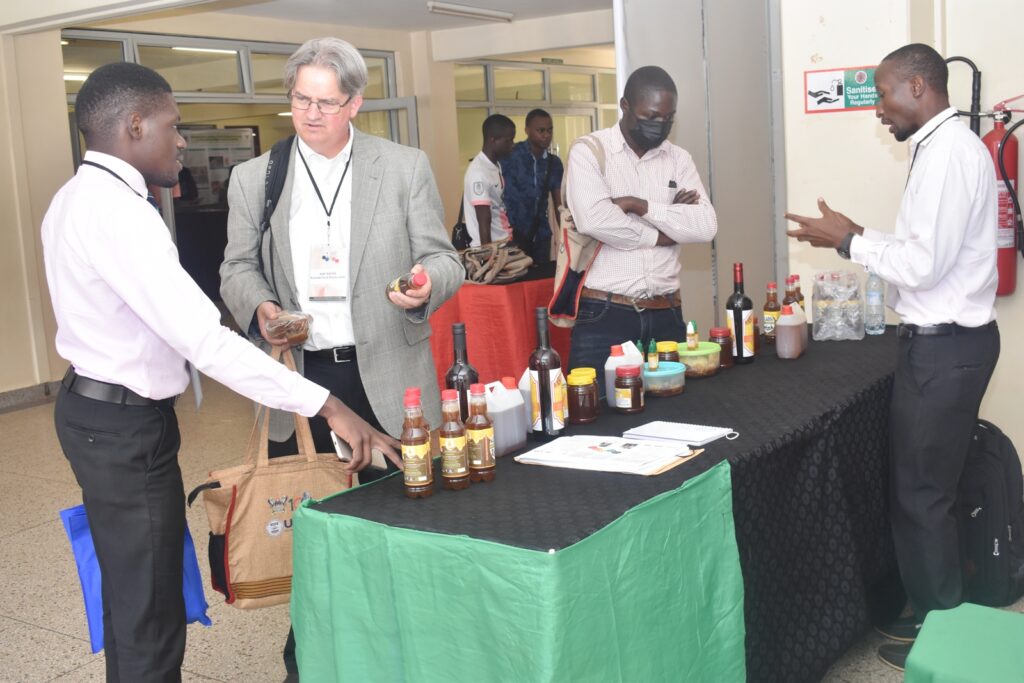
Research projects and innovations showcased
1. Breaking barriers to global organic market access through research and innovations at Makerere University
Organic Agriculture (OA) is a rapidly growing sector due to health concerns by consumers. Globally, Uganda is only second to India in terms of the number of organic producers (210,000 VS 1,366,000). Uganda was the first African country to develop a National Organic Agriculture policy-supporting environment in 2019. Despite an annual global organic market worth $100 billion USD, annual organic exports from Uganda only account for $50 million USD of the totaI. Limited knowledge and high transaction costs in OA are some of the major bottlenecks to market access. Agricultural products from Uganda are usually rejected in international markets due to standard challenges. 45% of organic products in Uganda are reportedly contaminated and this poses a danger to health. To minimize the challenge, researchers led by Prof. Fred Kabi from the Department of Agricultural Production, CAES developed an App that detects pesticides and aflatoxins in organic foods. The Kebera Organic App was designed by a group of researchers from CAES, the College of Computing and Information Sciences (CoCIS) and the College of Engineering, Design, Art and Technology (CEDAT) namely; by Mr. Ramadhan Nkuutu, Mr. Ambrose Kamya, Ms. Fatuma Nabatanzi, Dr. Daniel Basalirwa, Mr. Ronald Walumbusi and Mr. Brian Ogenrwoth. The App has been validated against globally recognised tools and proved suitable for field use and complies with the Food Safety Standards set by the Food and Agricultural Organization (FAO).
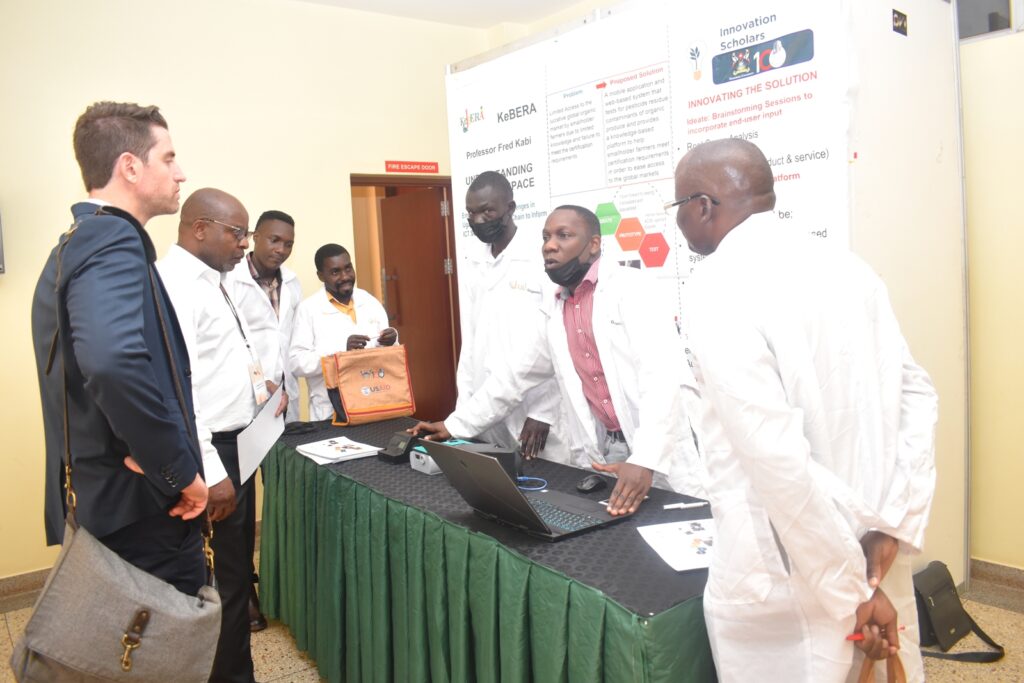
Click the link below to view a video demonstrating Dr. Fred Kabi’s Innovation Process.
https://drive.google.com/file/d/1ovZk01WfJF9vMMtzeT0RE2pF-Ty3XVUc/view
2. Developing Innovative Technology for the Medium, Small & Micro Enterprises (MSMEs) in the Food Processing Industry
A team of researchers led by Dr. Julia Kigozi and coached by Dr. Amy Jamison investigated the challenges faced by MSMEs Agro Processors in accessing pulping and pasteurizing equipment and discovered that many processors had limited access to the equipment due to the costs involved. To minimize the challenge, and increase access to the equipment, the team developed a tailor-made Pasteurizer and Fruit Pulper adapted according to end-user operational capacity, financial resources and available energy source, and composed manuals on the use and maintenance of the equipment. They also developed capacity among the agro-processors to design, simulate, fabricate and test the equipment. Other members on the project included; Mr. Moses Kalyango, Mr. Emmanuel Baidhe, and Mr. Isaac Oluk.
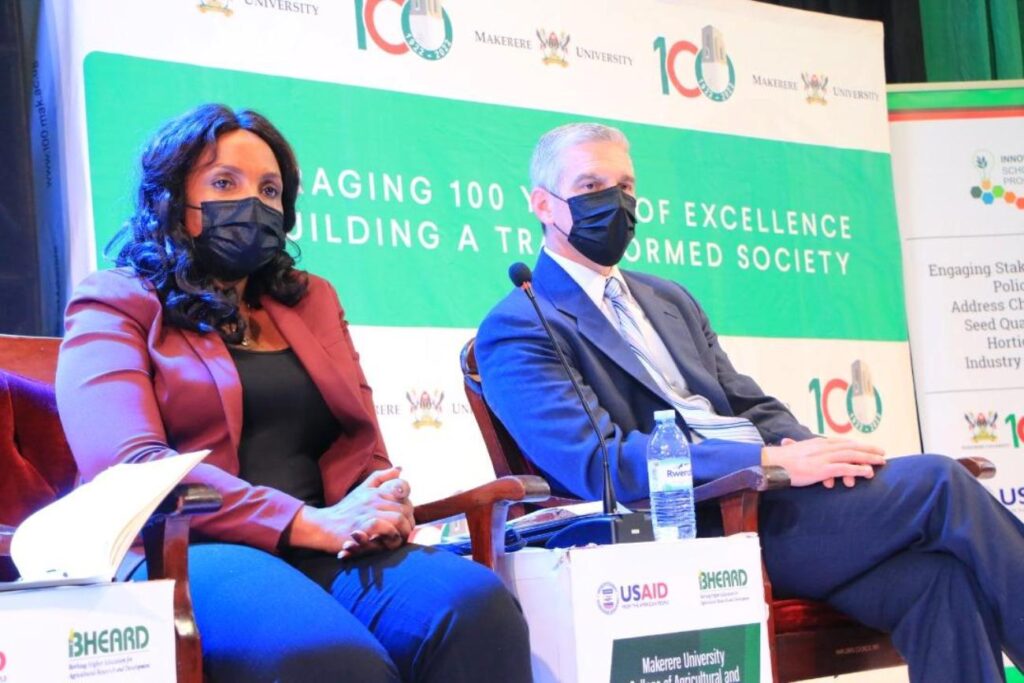
Click the link below to view a video demonstrating Dr. Julia Kigozi’s Innovation Process.
https://drive.google.com/file/d/1d3TSouASnCS_xCYdM4sf78QT7zRsNDXG/view
3. Learner-Centered Training in Environmental Science & Management
Strategic Goal No.2 of the Makerere University Strategic Plan 2020-2030 commits to Innovations in Teaching and Learning. The system has mainly been teacher-centred as opposed to learner-centred undermining practical training, critical thinking and innovativeness. Under the project, Prof. Justine Namaalwa and other team members namely: Prof. Anthony Egeru, Dr. Patrick Byakagaba, Dr. Kenneth Balikoowa, Dr. Ellen Kayendeke, Dr. Fred Yikii and Mr. Antonny Tugaineyo developed a Guide for Learner-Centered Processes at the Department of Environmental Management to support practical training and enhance innovativeness. The team worked in collaboration with Dr. Betty Ezati from the College of Education and External Studies, Makerere University; Dr. Jerome Lugumira from NEMA; Dr. Simon Nampindo from WCS; and Ms. Emily Namanya from Kampala Capital City Authority (KCCA).
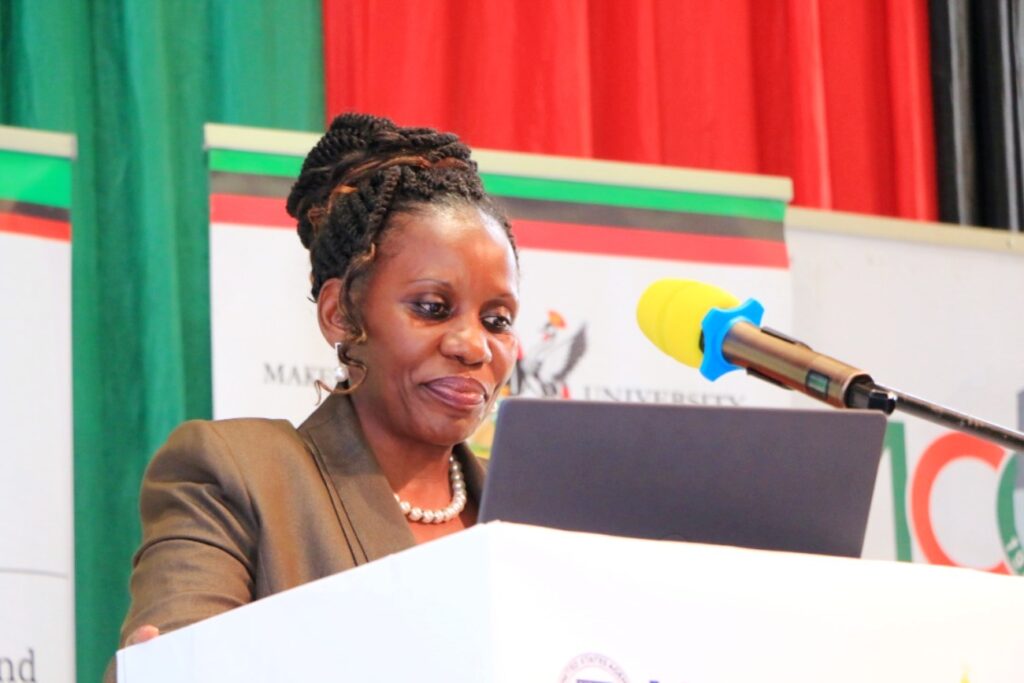
4. Capacity Enhancement for E-learning at Makerere University
Much as Makerere University E-Learning Environment (MUELE), is a common platform used for E-learning at Makerere University, both students and instructors lack the necessary skills to use the platform for learning and teaching because they have not been adequately trained. To enhance capacity for e-learning at the University, researchers led by Prof. Nelson Turyahabwe and coached by Dr. T.R. Silberg developed prototypes of audio-visual instructional materials to train instructors and students on how to access and navigate the MUELE platform for interactive teaching and learning. Other members on the team included Dr. G. Karubanga, Dr. H. Nabushawo, Ms. R. Mukebezi, Mr. I. Mugabiirwe.
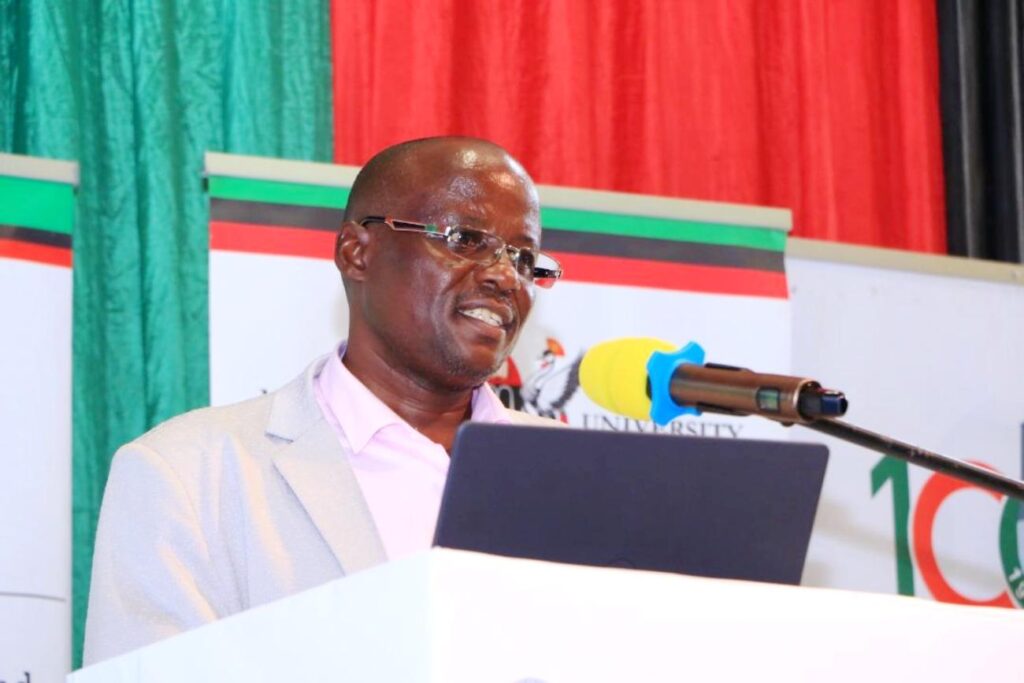
5. Engaging Stakeholders and Policy to Address Challenges in Seed Quality in the Horticulture Industry of Uganda: A Case of Tomato and Pepper
The Horticulture sector relies heavily on seed from the informal sector that is often of low quality and spreads disease. 40% of seed on market is counterfeit.The National Seed Policy (2018) that would contribute to addressing the challenge is not fully operational. There is also inadequate human capacity to conduct snowball efforts for improving seed quality in the horticulture industry. In a bid to increase access to quality seed in the Horticulture Industry in Uganda, the College of Agricultural and Environmental Sciences (CAES), Makerere University through the Innovation Scholars Program (ISP) has engaged different stakeholders in the country to address the challenges in seed quality. Through a project titled, “Engaging Stakeholders and Policy to Address Challenges in Seed Quality in the Horticulture Industry of Uganda: A Case of Tomato and Pepper”, researchers led by Dr. Jeninah Karungi-Tumutegyereize, an Associate Professor in the Department of Agricultural Production at CAES, Makerere University seek to enhance the quantity and quality of horticultural crops produce, and to strategically position CAES in agricultural development in the country. Other members on the project are; Prof. Samuel Kyamanywa, and Dr. Mildred Ochwo Ssemakula from the Department of Agricultural Production, Makerere University; Dr. Gabriel Ddamulira (Head, Horticulture Programme, National Crops Resources Research Institute (NaCRRI); Mr. Moses Erongu from the Department of Crop Inspection and Certification at the Ministry of Agriculture, Animal Industry and Fisheries; and Mr. Daniel Kituzi, a farmer and entrepreneur. Team coach was Prof. Andrew Safalaoh. Ideas put forward by stakeholders were compiled and synthesized.A policy brief has been developed as a key output.
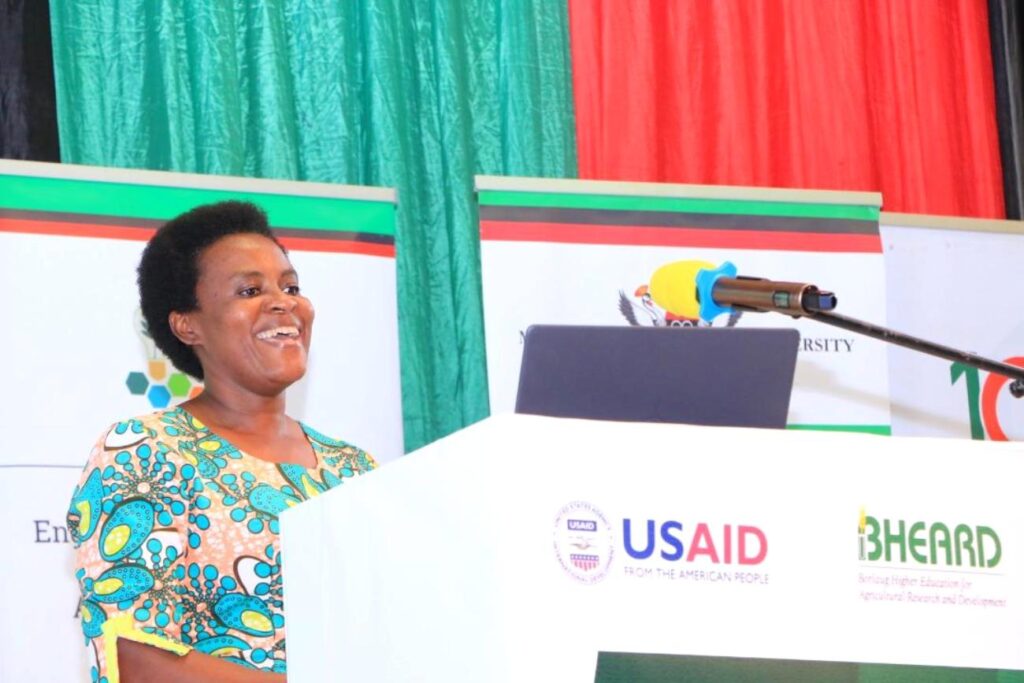
6. Benchmarking Approaches for Improved Delivery of Hands-on Practical Experiences for Business Management Courses at CAES, Makerere University
A team of researchers led by Dr. Alice Turinawe and coached by Dr. Sera Gondwe conducted investigations on topics that can be focused on to improve the delivery of more practical-oriented teaching. The team interviewed students, graduates and their employees to determine key topics that require more hands-on training. The team identified insufficient hands-on and practical exposure for entrepreneurship and marketing students, as well as limited experience and interaction with the world outside the study environment as some of the challenges undermining the performance of graduates. The team also established that potential employers and business partners expect soft skills from students.In a bid to produce better-equipped graduates, ready for life after school, the team strongly advocates for practical, hands-on skilling, as well as stronger connections between the university, private and public sectors.Other members of the team included Dr. Stephen Lwasa, Dr. Paul Aseete, Dr. Peter Walekhwa & Ms. Ahikiriza Elizabet.
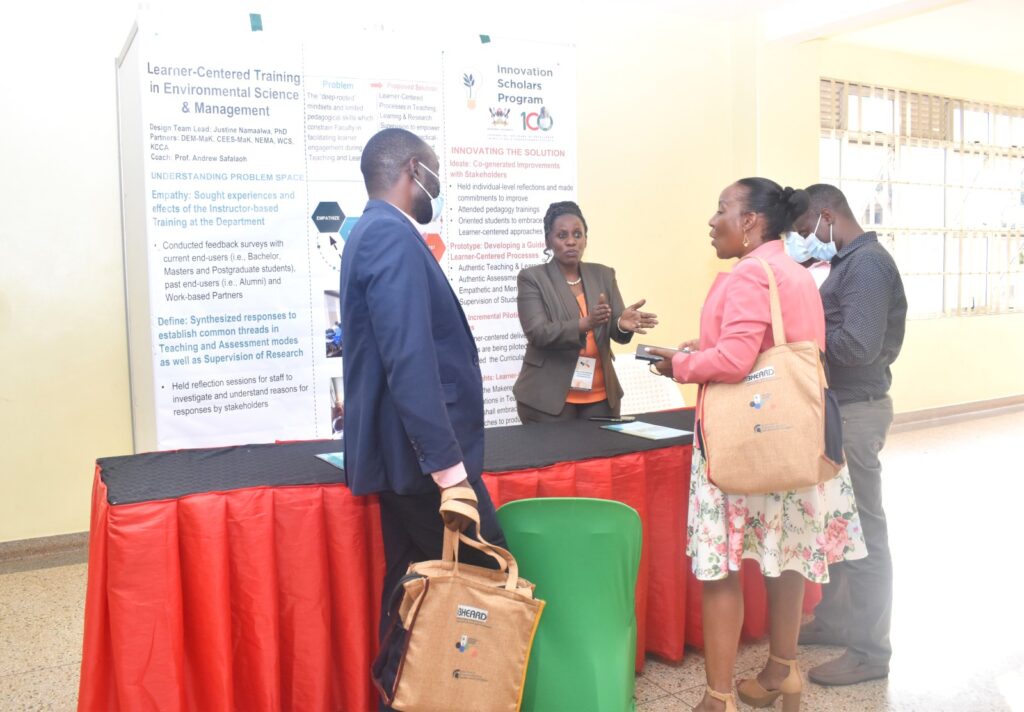
7. Deployment of a problem solving-centered teaching and learning approach using the Teach-Think-Pair-Share model for increased skilling among Agricultural students
Student lack full exposure to field problems for innovative learning and entrepreneurship. There is lack of a robust teaching and learning model that responds to the changing global needs in terms of innovativeness for entrepreneurship among students. Change in the style of delivery of lectures with inclusion of the Teach, Think, Pair, Share Model in new course descriptions is a possible solution for enhancing skills amongst students. The students are keen to learn with the model but they emphasize field practicals with progressive agribusiness entrepreneurship. Researchers including Dr Patrick Musinguzi (Team Leader), Dr Twaha A. Basamba, and Dr Emmanuel Opolot call for the novel Teach-Think-Pair-Share model of teaching and learning to be incorporated in the curriculum review process for agricultural based programmes. Funding to test the model with field-based practical support for students is critical to understand the novel teaching and learning approach.
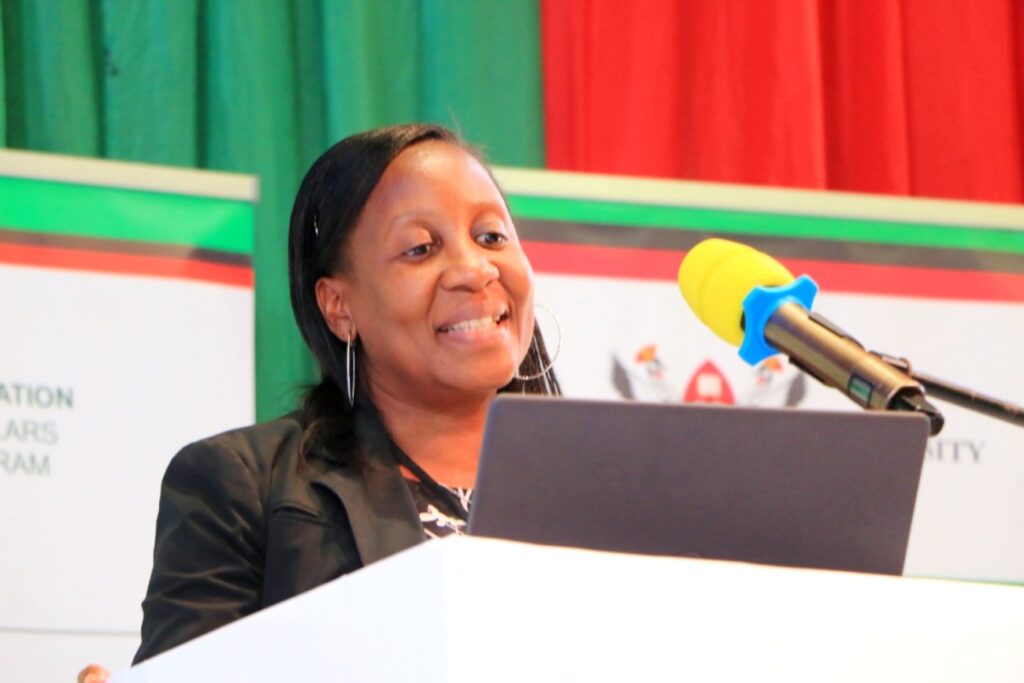
8. Strengthening The Department of Agricultural and Biosystems Engineering’s Industrial Training to Improve Students’ Innovativeness and Entrepreneurial Ability
Industries where students intern complain that they gain no tangible benefits from industrial training programmes. The students also complain that they are not motivated to be creative since they are forced to train in industries that do not match their strengths and/or interests.A solution that curates data on students’ strengths, abilities, interests and preferences and then proposing matching organizations ideal for their internship training comes in handy.Proper matching of students to industries increases their innovativeness.To match students’ desires with industry needs, researchers led by Dr Allan John Komakech and coached by Dr N. Peter Reeves developed a software platform programmed with a matching algorithm to cross-reference student abilities with company profiles. The platform will be tested with students and industries relevant to DABE and scaled to CAES.
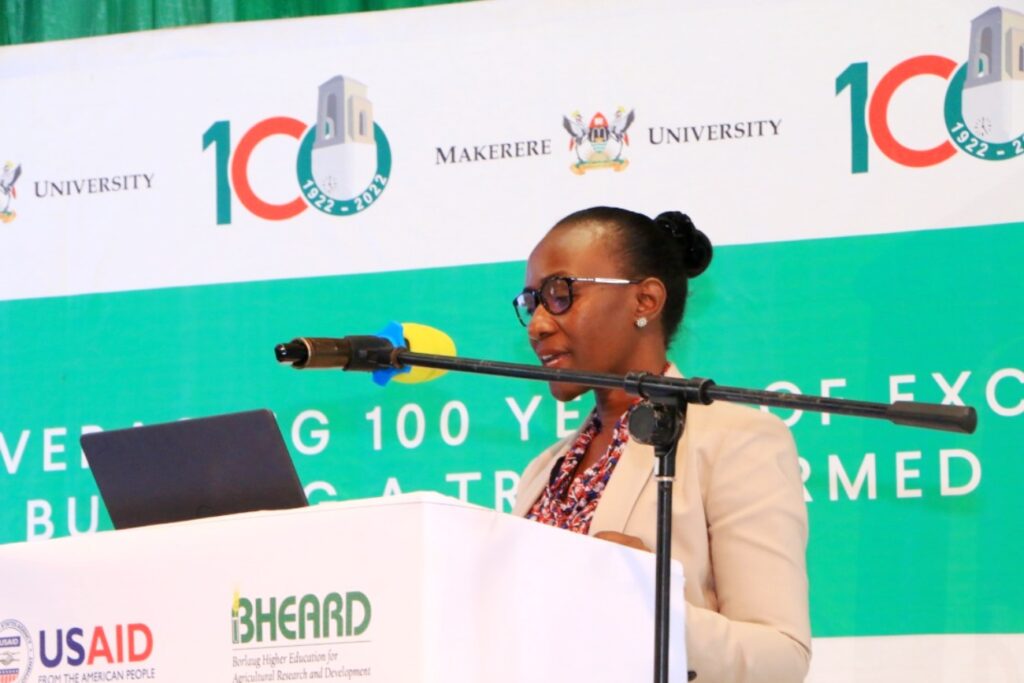
Remarks by the representative USAID
In her remarks, the Deputy Director USAID Mission in Uganda, Daniele Nyirandutiye commended the incredible innovations resulting from the CAESISP noting that they will play an essential role in addressing current and future food security challenges, and serve as a catalyst to spur more critical research and innovations at the University. “The CAESISP has greatly supported staff and students define better career paths and has strengthened the innovation culture at CAES,” she noted.Appreciating Michigan State University’s Borlaug Higher Education for Agricultural Research and Development (BHEARD) for supporting quality research, collaboration, outreach and capacity building in Uganda, she said the skills acquired by the scholars would greatly enhance the University’s capacity to influence policy. “Uganda’s ability to deal with food insecurity rests in our ability to drive innovations and adopt new technologies. Academic institutions play an essential role in the global agriculture market space. Collectively we can use our mind power to solve challenges of global food insecurity,” she said, calling upon all stakeholders to expand, sustain and nurture the programme beyond its life.
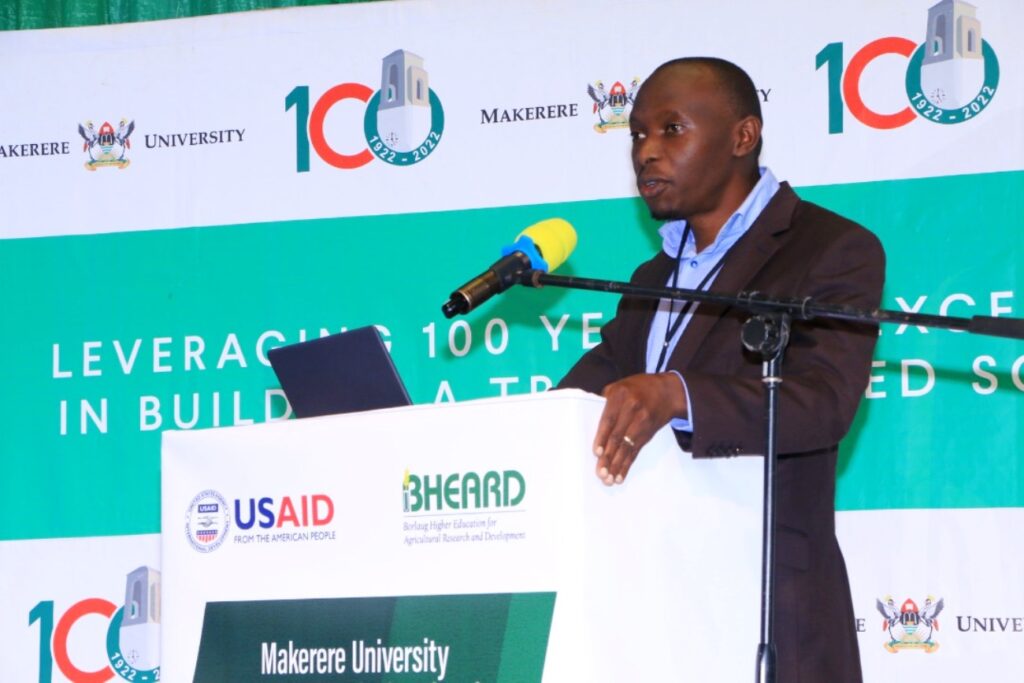
Remarks by the DVC/FA
On behalf of the Vice Chancellor, Makerere University, the Acting Deputy Vice Chancellor, Finance and Administration, Prof. Henry Alinaitwe appreciated USAID for tirelessly supporting Makerere University’s efforts towards becoming a research-led University. Over the years, USAID has partnered with and supported various programmes at Makerere. Specific to CAES, USAID through BHEARD supported 5 PhDs and 2 MA students between 2012-2016 to study in Universities in the US. The students participated in top level programmes focusing on Agriculture and nutrition. Between 2015-2019, USAID supported the development of a regional PhD in Agriculture and Applied Economics at the Department of Agribusiness and Natural Resource Economics, CAES. They also supported training of three PhD students in Agricultural Research and Policy Analysis. Emphasizing the central role of CAES in transforming the agricultural sector in the country and highlighting challenges posed by the growing population, Prof. Alinaitwe implored academics at the College to continue venturing into innovations that can address problems of food insecurity.
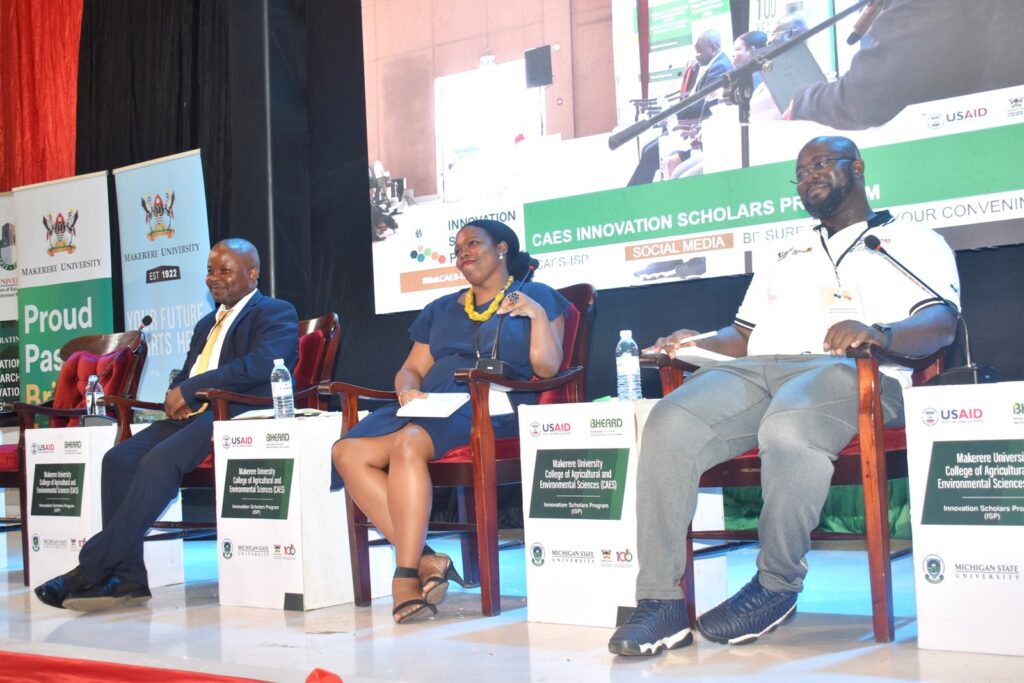
Remarks by the Principal, CAES
Addressing participants, the Principal of CAES, Prof. Gorettie Nabanoga said the College was moving towards more experiential learning & practical orientation of students. “In a bid to produce marketable graduates, we need to re-orient the mind-sets of our students to become critical thinkers & innovative,” she noted, appreciating the support rendered by USAID through the Innovation Scholars Programme that has enabled the College to make great strides in the Innovations journey. The Principal informed participants that as part of its strategic goals, the College was targeting to establish an innovations hub specific for agricultural and environmental innovations. She expressed gratitude to the Government of Uganda for the unwavering support towards research and innovations at the University, appealing for funding specifically ring-fenced for agricultural and environmental innovations at CAES. “We committee to remain innovation intentional as we leverage the 100 years of excellence at Makerere University”.
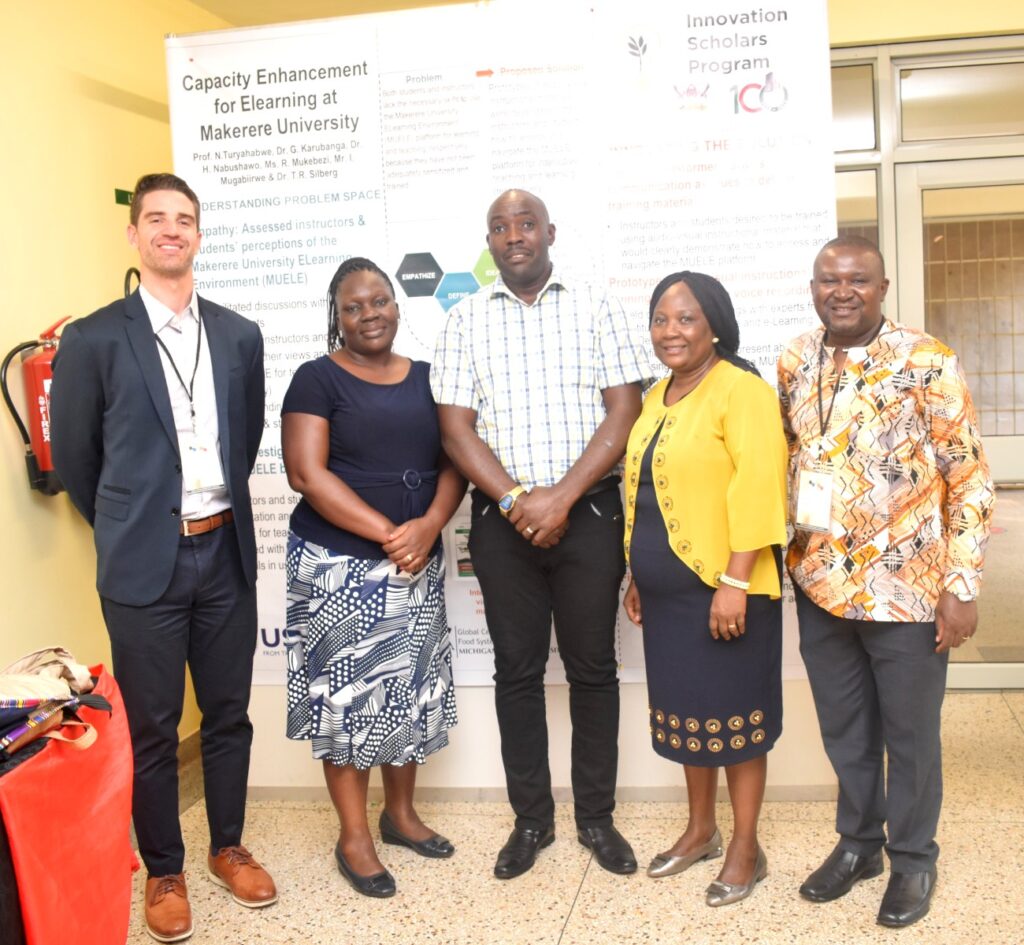
Panel discussion on nurturing innovative mind-sets
Sharing ideas on how to nurture innovative mind-sets, a panel of experts including Mr Apollo Segawa, Executive Director, CURAD Uganda; Mr. Benjamin Gyan-Kesse, Executive Director, Kosmos Innovation Centre – Ghana; Ms Freda Yawson, Entrepreneur and Senior Manager for Infrastructure and Innovation at the Africa Centre for Innovation in Ghana emphasized the need to be intentional about nurturing business mind-sets amongst students. “Every course should have an entrepreneurship unit. There is need to give more time to special projects,” they advised.They also emphasized the need to be intentional about developing a strong media policy on innovations, and to create models of intellectual property in context with the African Continent, as a way of promoting local content.
The event was moderated by Dr Patrick Byakagaba, a Lecturer at CAES.
You may like
-


Mak News Magazine: February 2026
-


CAES Presents Overall Best Performing Student in the Sciences & a Record 28 PhDs at the 76th Graduation Ceremony
-


Graduation marks the next phase of accountability, graduates told
-


Over 9,200 to graduate at Makerere University’s 76th Graduation
-


76th Graduation Highlights
-


Mak Selected to Host Alliance for African Partnership Africa Office
Agriculture & Environment
CAES Presents Overall Best Performing Student in the Sciences & a Record 28 PhDs at the 76th Graduation Ceremony
Published
5 days agoon
February 25, 2026
The College of Agricultural and Environmental Sciences (CAES) presented the best performing student in the Sciences at the 76th Graduation Ceremony of Makerere University. Ms. Esther Ziribaggwa graduated with a CGPA of 4.77 in the Bachelor of Agricultural and Rural Innovation. She credits her success to resilience and hard work, despite the financial challenges she faced during her studies.
The four-day 76th graduation ceremony commenced on 24th February 2026 with the CAES, the College of Computing and Information Sciences (CoCIS), the College of Education and External Studies (CEES), and the School of Law presenting graduands for the award of degrees and diplomas of Makerere University.

CAES Graduation Statistics
CAES presented a total of 561 students (238 female and 323 male). Of these 28 (10 female and 18 male) graduated with PhD, 144 (68 female and 76 male) with Masters, 380 (157 female and 223 male) with Bachelor’s degrees, and 9 with Post graduate diplomas (3 female and 6 male). The PhD graduates included; Mr. Ainebyona Ronald Rwambuka, Ms. Amongi Winnyfred, Ms. Apil Jenifer, Mr. Asizua Denis, Mr. Astatke Dejene Kebede, Ms. Atuhairwe Privah, Ms. Ayesiga Stella Bigirwa, Mr. Biryomumaisho Dickson, Ms. Cherotich Harriet, Mr. Kalimunjaye Samuel, Ms. Kesiime Vasiter Eunice, Ms. Khakasa Elizabeth, Mr. Kimbowa George, Mr. Komi Gentle Wilson, Mr. Kusiima Kaheesi Samuel, Mr. Mathe Lukanda Musondolya, Mr. Mukama Innocent Hope Tinka, Mr. Mukengere Bagula Espoir, Mr. Nakhokho Evans Martin, Ms. Faridah Nalwanga Sendagire, Ms. Nalweyiso Amina, Ms. Nampijja Zainah, Ms. Njenga Peninah Wambui, Mr. Nkurunziza Gelase, Ms. Ojera Alal Ato Gertrude Miriam, Mr. Sebuliba Richard Mutumba, Mr. Shimali Fred, and Mr. Ssubi Allan Johnson.

Overall graduation Statistics
During the course of the 76th graduation ceremony, a total of 9,295 students will graduate with degrees and diplomas of Makerere University. Of these, 4,262 (46%) are female and 5,033 (54%) are male. A total of 213 students will graduate with PhDs, the highest number in the history of the University; 2,503 with Masters degrees; 6,343 with Bachelor’s degrees; 206 with postgraduate diplomas, and 30 with Diplomas.
Postgraduates constituted 31.4% of the total number of graduands.
Remarks by the Vice Chancellor
Addressing the congregation, the Vice Chancellor of Makerere University, Prof. Barnabas Nawangwe, congratulated the graduates on reaching this significant milestone. “You graduate today from one of the finest universities in the world,” he said. “You have distinguished yourselves through discipline, integrity, and academic excellence, and we are immensely proud of you. The qualifications you carry are vital to society. We have equipped you with the knowledge and skills to secure employment or to create enterprises that will, in turn, employ others. Should you not find immediate employment, do not despair, instead, reflect on the vast opportunities around you and rise to the challenge as entrepreneurs. Do not despise humble beginnings. To our PhD graduands, you now join the global community of scholars. Africa looks to you with great expectation. Use your expertise to transform our continent.”

He appreciated the parents and guardians for the sacrifices they made to support their children’s education.
New Research Excellence Recognition Plans
The Vice Chancellor informed the congregation that beginning with the 76th graduation ceremony, the University will recognize outstanding PhD students who are members of staff. He congratulated those who completed their doctoral studies in record time while continuing to serve without study leave, commending their resilience and leadership. “These will receive the Makerere PhD Resilience Award”.
Similarly, the University will henceforth honour the best PhD and Master’s theses, as selected by the Higher Degrees Committee of Senate. The students with the top 10 theses at the 76th graduation are: Kawesi Paul – MA Law (School of Law), Katende Stephen – MSc Quantitative Economics (COBAMS), Najjinda Shamirah – PhD Management (COBAMS), Turyahabwe Irene – MSc Molecular Biology (COVAB), Tayebwa Dickson – PhD (COVAB), Batte Herbert – PhD Mathematics (CONAS), Ssekago Arnold – MSc Mathematics (CONAS), Namiyingo Julian – PhD Literature (CHUSS), Namata Brenda – MSCO (CHUSS), and Tayebwa Asaph Kamau – MBA (MUBS).

Recognition of the CAES Research Output
In his remarks, the Vice Chancellor commended the College of Agricultural and Environmental Sciences for spearheading transformative research aimed at strengthening Africa’s food systems. Among the initiatives he highlighted was the Healthy Soy Project, funded by the Danish Ministry of Foreign Affairs, which seeks to develop sustainable, affordable, and nutritious soy-based foods to combat child stunting in Uganda and other climate-affected regions. He also cited a project focused on enhancing value addition in cocoa production through the development and scaling of a single fermentation box technology, now adopted by more than 70% of farmers in major cocoa-producing districts.

Efforts to Transform Makerere into a Research-led University
The Vice Chancellor noted that Makerere University continues to advance steadily toward becoming a truly research-led institution – one that generates knowledge to empower communities, strengthen industries, and drive national transformation.
He expressed gratitude to the Government of Uganda for entrusting the University with resources to support more than 1,400 high-impact research and innovation projects under the Makerere University Research and Innovations Fund (Mak-RIF). The Fund has enabled researchers to provide practical, evidence-based solutions in sectors including agriculture, land management, energy and minerals, peace and security, and education. Through Mak-RIF, over 200 PhD students have received support to pursue their research, many of whom are graduating at the 76th graduation ceremony.

The Vice Chancellor further highlighted the pivotal role of the Makerere University Technology and Innovations Centre (MUTIC) in advancing incubation and commercialization. “The Centre offers mentorship, business development training, intellectual property support, and industry linkages to help transform research outputs into viable enterprises. To date, eleven spin-off companies have been established by students and staff, while the University’s Innovation Pod (UniPod) has incubated more than 100 projects in the past year. The short-term target is to establish 50 spin-off companies annually, with plans to double that number in the long term.”
In partnership with the Science, Technology and Innovation Secretariat in the Office of the President, the University has also introduced awards to recognize outstanding researchers and innovators. “The Innovation Commercialization Award underscores the institution’s commitment to translating research into practical products, services, and technologies that address real-world challenges and support national development,” the Vice Chancellor noted.

Prof. Nawangwe appreciated the Government of Uganda for securing a USD 162 million loan from the Korea Exim Bank to support critical infrastructure development at the University. The funding will facilitate the construction of new facilities for the School of Medicine, School of Dentistry, School of Engineering, the Science and Technology Centre, and the completion of the School of Computing and Information Sciences- an unprecedented development in the University’s history.
He also thanked development partners who provide research grants and scholarships, including the MasterCard Foundation, European Union, Norwegian Agency for Development Cooperation, Swedish International Development Cooperation Agency, International Development Research Centre, Korea International Cooperation Agency, German Academic Exchange Service, National Institutes of Health, Centers for Disease Control and Prevention, United States Agency for International Development, Wellcome Trust, KfW, Inter-University Council for East Africa, Regional Universities Forum for Capacity Building in Agriculture, African Research Universities Alliance, the PLUS Alliance, the Worldwide Universities Network, the Association of African Universities, the Alliance for African Partnership, the Madhvani Foundation, and the Government of Uganda through the Higher Education Students Financing Board.

He further acknowledged the Embassy of China, the Chinese Chamber of Commerce, various government ministries, State House, and private sector partners – including Stanbic, Absa, NCBA, DFCU, and Centenary Bank-for their continued support.
Remarks by the Chancellor
In his remarks, the Chancellor, Hon. Dr. Crispus Kiyonga, appreciated the parents, guardians, and sponsors whose unwavering support enabled the students to succeed.
“At the heart of the graduands’ accomplishments are the professors, lecturers, and administrators of the University, ably supported by the University Council. It is only fitting that we acknowledge and commend them for a job well done,” he noted.

He further extended profound gratitude to H.E. Yoweri Kaguta Museveni and the NRM Government for the invaluable financial and other support extended to the University.
Going forward, he encouraged the University Administration to strengthen research funding, forge stronger partnerships with the private sector to commercialize innovations, deepen structured engagement with communities, and fully leverage the abundant technological resources available to the institution.
Message from the Minister of Education and Sports
The Minister of Education and Sports, also First Lady, Hon. Janet Kataaha Museveni, represented by Hon. Dr. Joyce Moriku Kaducu – Minister of State for Primary Education, commended the Vice Chancellor and the leadership of Makerere University for upholding the standards that continue to distinguish the University across Africa and beyond.

She expressed gratitude for the spirit of constructive collaboration among management, staff, students, and development partners, noting that such cooperation is vital for institutional growth and academic excellence. She paid special tribute to the University Council, particularly the Chairperson and its members, for their dedicated oversight and stewardship. Their commitment to transparency and good governance, she observed, has strengthened public confidence in this historic institution.
A major milestone highlighted by the Minister was the establishment of the Makerere University Research and Innovation Fund (RIF), which supports high-impact research aligned with national priorities and development goals. Through this initiative, thousands of researchers and innovators have developed practical, scalable solutions that are transforming communities and key sectors across Uganda.

She reaffirmed the Ministry’s commitment to strengthening higher education through expanded research funding, digital transformation, cultural reform, and stronger collaboration between academia and industry. “The vision is clear: universities must not only produce graduates, but also solution-makers and job creators”.
Implementing the Competence-based Education and Training
Reiterating a key directive from the Ministry of Education and Sports, she emphasized that all institutions of higher learning must prepare for the full implementation of Competence-Based Education and Training by July 2027. “This reform represents more than a policy shift. It signals a fundamental transformation in how graduates are prepared, with greater emphasis on practical skills, innovation, and problem-solving.”

She urged the Vice Chancellor and his team to lead in curriculum reform, staff development, and infrastructure enhancement to ensure the successful rollout of competence-based education.
The Minister further urged university management to ensure that all satellite campuses are fully accredited and that their programmes meet the same high standards of quality and relevance as those offered at the main campus. This, she stressed, is essential to safeguarding the integrity of the University’s degrees and effectively serving students nationwide.

Addressing the graduates, she noted that Uganda and Africa need innovators to modernize agriculture, engineers to build quality infrastructure, healthcare professionals to strengthen health systems, and educators to inspire future generations. “The world you are entering is dynamic, interconnected, and technologically driven. Artificial Intelligence is reshaping industries; climate change is redefining agriculture and urban planning; and global markets are transforming employment patterns. In this rapidly evolving landscape, you must remain adaptable, creative, and committed to lifelong learning.”
Address by the Commencement Speaker, Prof. Nicholas Ozor
In his address titled Knowledge with Purpose and Service with Integrity, the Commencement Speaker, Prof. Nicholas Ozor, Executive Director of the African Technology Policy Studies Network, urged the graduates to embrace lifelong learning, prioritize purpose over comfort, build character before career, and serve something greater than themselves. He encouraged them to believe in Africa and take action, rather than waiting for solutions from elsewhere.

Addressing the graduates of CAES, he emphasized that they stand at the intersection of survival and sustainability. “In a world confronting climate change, food insecurity, and environmental degradation, your knowledge is vital. You will work with farmers, ecosystems, land, water, and policy. You will shape food systems and livelihoods. Respect indigenous knowledge, embrace scientific innovation, and champion sustainability. The future of Africa depends on how well we feed our people and protect our land.”

Research Excellence and Innovation Commercialization Awards
During the graduation ceremony, Makerere University recognized the top researchers and innovators from the 10 Colleges. At CAES, Dr Mugabi Robert from the School of Food Technology and Nutrition received the Overall Top Researchers Award, 2026; Dr. Nalwanga Sendagire Faridah received the Best Early Career Researcher Award, Dr Mugabi Robert scooped the Mid-Career Research Award whereas Prof. Yazidhi Bamutaze got the Senior Career Research Award. Prof. Phinehas Tukamuhabwa, Dr Ephrahim Nuwamanya, Assoc. Prof. Ahamada Zziwa, and Dr Ssempijja John Edson were recognized among the best innovators.

More about Esther Ziribaggwa, the overall best performing student in the sciences:
Agriculture & Environment
Mak hosts First African Symposium on Natural Capital Accounting and Climate-Sensitive Macroeconomic Modelling
Published
1 week agoon
February 20, 2026
African economies are increasingly exposed to climate-related shocks that threaten development gains, fiscal sustainability, and macroeconomic stability. From extreme weather events and biodiversity loss to the depletion of natural capital, climate risks are reshaping economic realities across the continent. Yet many macroeconomic frameworks used in public finance and planning continue to overlook climate and nature-related risks and the long-term benefits of resilience and adaptation investments.
To address this emerging reality, over 250 participants from Africa, Europe and beyond, convened at Makerere University – Kampala, on the 12th and 13th of February 2026, to participate in the First African Symposium on Natural Capital Accounting and Climate-Sensitive Macroeconomic Modelling.
Following the theme, “Climate-Sensitive Macroeconomics: Rethinking Growth in Africa’s Natural Resource Base, the hybrid symposium organized by Makerere University through the Centre of Excellence for Africa Climate-Sensitive Macroeconomic Modelling (CEACM) within the School of Economics, under the College of Business and Management Sciences (CoBAMS), the Environment for Development Initiative (EfD), and the Ministry of Finance, Planning and Economic Development (MoFPED) in Uganda, brought onboard ministers, leading economists and planners, researchers, policy makers, the academia, development partners, climate change experts and the media.
The Symposium being the first of its kind on the continent, reflected Africa’s growing determination to work collectively in confronting shared development challenges, building on recent momentum such as the formation of Pan-African Finance Ministers Forum for Climate Action (PAFMCA).
Featuring speeches and presentations from notable speakers and partners, a keynote address on Natura Capital Accounting and Climate Change Nexus in Africa and their impact on Fiscal Policy, panel discussions, expert opinions, and exhibition kiosks (World Café), the symposium presented a platform to strengthen Africa’s analytical and institutional capacity to integrate climate and natural capital considerations into macroeconomic and fiscal policy.
Vice Chancellor underscores the role of universities
Welcoming the delegates to Makerere University, the Vice Chancellor-Prof. Barnabas Nawangwe emphasized that universities must lead innovation and collaborative research efforts to support collective climate change mitigation across the continent.
In the same vein, he advocated for strong collaboration between universities in Africa and government Ministries. “Makerere’s collaboration with the Ministry of Finance, Planning and Economic Development, stands as a shining example of how academia and government can strengthen economic management,” he said.

Prof. Nawangwe revealed that the collaboration between Makerere University and the Ministry, has strengthened macroeconomic modelling, fiscal policy analysis, and technical capacity within government. In addition, the partnership led to the establishment of the Centre of Excellence for Africa Climate-Sensitive Macroeconomic Modelling, bridging academic scholarship with real-world policy application.
“We have jointly established the Centre of Excellence for Africa Climate-Sensitive Macroeconomic Modelling. The Centre (established in August 2025) is anchored within the School of Economics in the Department of Policy and Development Economics, under the Master of Science in Economic Policy and Investment Modelling, a program jointly facilitated by Makerere University, the Ministry of Finance, Planning and Economic Development and the Bank of Uganda,” he mentioned.
Climate and Economic transformation are inseparable
The Vice Chancellor highlighted the critical intersection between economic transformation and environmental sustainability, noting that economies in Africa, heavily dependent on natural resources, face unprecedented pressures from climate shocks, biodiversity loss, and environmental degradation. Convinced that economic growth cannot be pursued in isolation from climate and environmental realities, he stressed the importance of integrating natural capital accounting and climate considerations into national development strategies.
Prof. Nawangwe advocated for shared responsibility of universities, research institutions, and policymakers to develop innovative analytical tools, responsive policy frameworks, and strong institutional capacities that promote sustainable growth while safeguarding environmental assets for future generations.
The Vice Chancellor commended UN PAGE and the Global Green Growth Institute (GGGI) for funding the symposium, as well as, other stakeholders namely the European Union and the Coalition of Finance Ministers for Climate Action (CoFMCA), Ministry of Water and Environment (MoWE), National Planning Authority (NPA), Uganda Bureau of Statistics (UBOS), the National Environment Management Authority (NEMA) for being reliable partners.
Integrating Climate into Fiscal Policy
During the opening ceremony, the Minister of Finance, Planning and Economic Development, Hon. Matia Kasaija underscored the urgency of embedding climate considerations into economic planning.
“As Ministers of Finance, we are often confronted with difficult trade-offs. Our task is to balance the needs of today with sustainability for future generations,” said Hon. Kasaija, in a speech read by Hon. Henry Musasizi, the Minister of State for Finance (General Duties).

The Minister guided that traditional macroeconomic models focusing only on growth, inflation, and fiscal balance are inadequate in an era of climate shocks. He affirmed that African economies are facing interconnected challenges which directly impact economic growth. He stressed that traditional macroeconomic frameworks must evolve to systematically incorporate environmental degradation and climate shocks, whose consequences can no longer be ignored in policy analysis.
“For countries such as Uganda, whose development prospects are closely linked to natural resources and the climate-sensitive sectors, these challenges are not abstract. They affect livelihoods, public finances and long-term economic resilience,” he mentioned.
The Minister emphasized that natural capital accounting and climate-sensitive macroeconomic modelling are vital for valuing natural assets, assessing environmental costs, and guiding sound investment decisions.
Protecting Africa’s Natural Capital
Hon. Beatrice Atim Anywar, Minister of State for Environment, emphasized the urgent need to protect Africa’s ecosystems. “Africa stands at a defining crossroads. Our economies remain anchored in natural capital—forests, water resources, biodiversity, land, and ecosystems—which sustain life, generate fiscal revenue, and underpin development,” she said.
She warned that climate-related shocks are already undermining growth and public investment. “Floods, droughts, land degradation, biodiversity loss, and water stress are no longer distant risks. They are present realities, already affecting productivity and macroeconomic stability,” she said.
She emphasized the need for improved economic models that account for environmental and climate risks: “Traditional macroeconomic frameworks have not adequately captured climate risks or the long-term economic benefits of resilience and adaptation. This limits our ability to make informed policy decisions as Africa pursues economic transformation, energy security, and fiscal stability,” she stated.
Hon. Anywar highlighted collaboration with GIZ, Makerere University, and government ministries, which led to the development of the MONCAP (Model for Natural Capital Policy Assessment). “This tool is being used to assess natural capital assets for climate change, energy transition, and their linkages to the macroeconomy. It supports budgeting by estimating the cost of depleted natural capital assets,” she said.
“Water security, forest conservation, ecosystem restoration, and climate adaptation are not costs. They are investments in Uganda’s long-term economic stability, productivity, and prosperity.”
Stakeholders urged to transform climate threats into opportunities
Adam Sparre Spliid, the Deputy Head of Mission, Danish Embassy said: “Integrating climate risk and natural capital into our macroeconomics frameworks is not only academic exercise, it is a massive de-risking strategy for private investment. By bridging the gap between government policy and planning, academia and research, and the private markets, we transform climate threats into tangible opportunities.”
Sustainability includes youth, jobs and human well-being
Dr. Steven Stone, Chair of the UN PAGE Management Board, emphasized that sustainability extends beyond the environment to encompass youth, jobs, economic growth, and human well-being. “While the environment is Africa’s foundational source of wealth, sustainable development requires balancing ecological stewardship with economic progress, including income and employment for the youth which are critical priorities for countries such as Uganda.”
Dr. Stone highlighted that UN PAGE, originating from the Rio+20 Conference, supports climate-sensitive economic policy in Africa, emphasizing that dialogue, scenario-building, cross-sector collaboration, and strong partnerships are key to advancing sustainable, inclusive, and climate-resilient development.
Africa’s Wealth Declining
In the keynote address titled, Natural Capital Accounting and Climate Change Nexus in Africa and their Impact on Fiscal Policy, Paul Jonathan Martin, Manager of Environmental Operations at the World Bank for Eastern and Southern Africa, and a specialist with over 30 years in climate and natural resources, warned that Africa’s overall wealth is under threat due to declining renewable natural capital.
“Produced capital has increased by 20%, human capital by a third, but renewable capital has declined by 30%,” Martin said. “When combined, Africa’s overall wealth trajectory has been weakening since 2010.”
He stressed that natural resources must be treated as economic assets requiring systematic accounting: “Africa’s rich natural resources are fundamental for sustainable development,” he said.
Citing examples from Ethiopia and Kenya, he highlighted successful integration of natural capital into public investment and budget decisions. “In Ethiopia, there are payments for ecosystems and investment prioritization tools. In Kenya, natural capital accounting integration into budgets has strengthened public investments. Climate change has deep, cascading effects across sectors, but Africa has major potential to lead climate solutions,” he said.

Martin also highlighted the economic benefits of climate adaptation: “From 2020–2050, the cumulative effect of adaptation on Uganda’s GDP is positive. Without action, under a dry/hot climate future, GDP could significantly deviate from projected growth paths.”
Drawing on insights from over 70 country climate and development reports produced by the World Bank, the keynote speaker highlighted the profound macroeconomic impacts of climate change across Africa. He stressed the importance of integrating climate and natural capital into macroeconomic planning. He noted that Africa’s forests, water systems, and biodiversity are vital for sustainable development but face growing threats from climate change, environmental degradation, and climate-related disasters that undermine productivity, public investment, and economic stability.
He observed that traditional macroeconomic models often fail to capture the value of natural assets and regulating ecosystem services, which are critical to both economic stability and resilience but are largely excluded from GDP calculations.
Africa-Led Solutions
Prof. Edward Bbaale, Principal, College of Business and Management Sciences (CoBAMS), stressed the importance of developing African-led solutions. “We need to champion the Africa-led model. We need approaches that fit our unique context. Africa is not here to take in other frameworks blindly,” he said.
By supporting research, training, policy dialogue and modelling innovation, the Centre of Excellence for Africa Climate Sensitive Macroeconomic Modelling (CEACM) positions Makerere University as a regional hub for advancing climate-sensitive macroeconomic policy across Africa.
He highlighted CEACM’s capacity-building programs: “Our goal is to ensure African Ministries of Finance have home-grown expertise to integrate climate and natural capital considerations into fiscal and macroeconomic policy. This is critical for long-term resilience and sustainable development,” he said.
The Principal explained that establishment of independent research centres enables Makerere University to go beyond traditional academic instruction and focus deeply on societal challenges, particularly those related to climate change, environmental degradation, and biodiversity loss.

He reported that the Centre of Excellence for Africa Climate-Sensitive Macroeconomic Modelling is structured to advance methodological innovation, develop new data systems, and strengthen climate-sensitive macroeconomic tools that are tailored to the African context.
MONCAP Model for Policy Assessment
Dr. Peter Babyenda, a member of faculty at CoBAMS, demonstrated MONCAP (Model for Natural Capital Policy Assessment), which integrates climate and natural capital variables into fiscal and macroeconomic planning.
“MONCAP allows policymakers to estimate the economic cost of depleting natural assets such as forests, wetlands, and water resources. It helps simulate policy options and determine how investments in natural capital yield long-term benefits,” Babyenda said. “We came up with this model to aid the Ministry of Water and Environment. This model is open—you can extend it,” he added.

He highlighted capacity-building initiatives, including short courses and the Master of Science in Macroeconomic and Investment Modelling, designed to train economists to incorporate natural capital and climate into policy planning.
International Perspectives
Sweetman Liam, Ireland’s Finance Minister, highlighted the economic value of ecosystems: “There is a deeper value of landscapes in flood prevention and biodiversity. Decision-making was informed, and people started understanding economic value,” he said.
Prof. Chukwuone Nnaemeka of the University of Nigeria emphasized collaboration with national statistical agencies: “We coordinate with the National Bureau of Statistics to develop natural capital accounting metrics. Increase the use of Natural Capital Accounting in decision-making,” he stated.
Technical and Parallel Sessions
The afternoon session featured three parallel sessions focusing on Natural Capital Accounting Methodologies and Best Practices, Climate-Sensitive Fiscal and Economic Modelling, and Natural Capital Accounting and Model Uptake and Use.
Drawing on diverse expertise, the panels highlighted innovative approaches and demonstrated that natural capital is not an environmental afterthought, but a central pillar of sustainable economic and policy planning.
The first day of the African Symposium drew to a close with interactive exhibitions at the World Café, where case studies and practical demonstrations highlighted innovative approaches to integrating climate and natural capital into economic planning. Participants actively engaged in discussions and networking, forging collaborations that promise to advance climate-sensitive fiscal and development strategies across Africa, setting a strong and optimistic tone for the days ahead.
Agriculture & Environment
Uganda Martyrs Namugongo Students Turn Organic Waste into Soap in an Innovative School Project on Sustainable Waste Management
Published
1 week agoon
February 20, 2026
*****The students were supervised by researchers from the College of Agricultural and Environmental Sciences (CAES) at Makerere University, led by Prof. Fred Kabi.
The garbage challenge
With urbanization rates rising rapidly across Uganda, municipal solid garbage generation in the country’s cities is projected to increase by more than 40 percent by 2050. The growing burden of unmanaged garbage, particularly organic garbage, continues to pose environmental and public health risks, underscoring the urgent need for innovative and sustainable solutions.
It is against this backdrop that Senior Four students of Uganda Martyrs Secondary School Namugongo undertook a project to demonstrate how local market garbage challenges can be transformed into opportunities for sustainable development.

Addressing the garbage Challenge
As part of their academic project under the competence-based curriculum, the students were tasked with identifying real-world challenges within their communities and developing practical solutions using locally available resources. Through research and field observations, they identified poor garbage management, particularly the accumulation of organic waste at major dumping sites such as Kiteezi Landfill, as a critical issue.
At these sites, unsorted solid garbage often accumulates uncontrollably, sometimes leading to collapses that pose serious environmental and public health risks including water contamination by leachates, persistent foul odors, and disease outbreaks.

Rather than solely viewing solid market garbage as a problem, the students recognized its untapped potential within the biodegradable fraction of market garbage streams. Their innovative solution was to convert organic solid market waste (biodegradable garbage) into an industrial raw material for soap production by utilizing saprophagous Black Soldier Fly larvae (BSFL) to accumulate lipids and applying the scientific process of saponification.
Makerere University Support to the project
The students’ project was supervised by Prof. Fred Kabi together with technicians from the College of Agricultural and Environmental Sciences (CAES) at Makerere University. Prof. Kabi and his team have been actively researching on Black Soldier Fly Larvae (BSFL) as a bio-waste management technology capable of converting biodegradable solid municipal garbage and farm waste into valuable by-products such as organic fertilizers, animal feeds, soap, and biodiesel.
Working in collaboration with Ento Organic Farm Uganda Ltd, the researchers have demonstrated how insect-based waste conversion systems can support a circular economy by transforming biodegradable waste into industrial raw materials.

According to Prof. Kabi, the five young garbage entrepreneurs (students) began their project by collecting information on household garbage management practices. After analyzing the data, they engaged stakeholders along the garbage value chain to brainstorm all-inclusive, source-based waste management strategies.
“The students developed a solution that links efficient waste management at garbage generation source to support production of organic fertilizer, insect protein for animal feeds, and soap, which is only possible with biodegradable garbage,” Prof. Kabi explained. “This approach of the Competence Based Curriculum (CBC) for lower secondary schools supports the concept of taking Makerere University to the community of budding scientists while promoting sustainable community development through a circular economy.”
From Market Waste to Soap Bars
The Team leader, Ms. Ivy Stephanie Kitali explained the step-by-step scientific process behind the project. The students began by collecting organic waste from local markets, which was then shredded to prepare it for the larvae as a substrate. “Black Soldier Fly larvae were then introduced to the prepared waste. The larvae efficiently consumed the organic matter, greatly reducing its volume while accumulating lipids (fats) in their bodies. After maturation, we separated the larvae from the remaining waste, euthanized through blanching and dried it. Oil was then extracted from the dried larvae using ethanol as a solvent. This lipid-rich oil became the primary ingredient or raw material for soap production. To enhance the final product, the larvae oil was blended with minute quantity of sunflower oil before adding sodium hydroxide, initiating saponification, the chemical reaction that transforms fats and oils into soap,” she explained. The process ultimately yielded usable bars of soap derived entirely from what had once been discarded as unwanted market waste/garbage.

Building Skills and Sustainable Innovation
Beyond producing soap, the project provided students with hands-on training in scientific research, waste management techniques, bio-chemistry, and sustainable innovation. They gained practical exposure to insect-based biotechnology and learned how environmental challenges can be addressed through science-driven by entrepreneurship.
Trending
-

 Humanities & Social Sciences7 days ago
Humanities & Social Sciences7 days agoMeet Najjuka Whitney, The Girl Who Missed Law and Found Her Voice
-

 General6 days ago
General6 days ago76th Graduation Highlights
-

 Health2 weeks ago
Health2 weeks agoUganda has until 2030 to end Open Defecation as Ntaro’s PhD Examines Kabale’s Progress
-

 Agriculture & Environment1 week ago
Agriculture & Environment1 week agoUganda Martyrs Namugongo Students Turn Organic Waste into Soap in an Innovative School Project on Sustainable Waste Management
-

 General2 weeks ago
General2 weeks agoMastercard Foundation Scholars embrace and honour their rich cultural diversity
